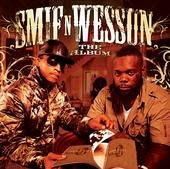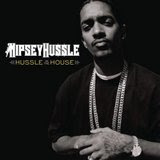 This week ya boy boyee Cool V & financial partna "Money" Mike picked up from last week, and went in on dropping some heavy on the importance of "diversification" with your personal & business planning. A special thanks, goes out to one of our caller's, associate's, friend, as she to has been doing her homework on positioning herself on how to get ahead with her financial future, none other than "Killa Diva". It's not often do we get it straight with just real hard information that can be applied in our everyday activities, whether we are an individual, family, business owner, entrepreneur, artist, model...etc... So as always if you missed this week's Money & Music Show, you know we got you, so listen in, catch up, and step your game up, right here:
This week ya boy boyee Cool V & financial partna "Money" Mike picked up from last week, and went in on dropping some heavy on the importance of "diversification" with your personal & business planning. A special thanks, goes out to one of our caller's, associate's, friend, as she to has been doing her homework on positioning herself on how to get ahead with her financial future, none other than "Killa Diva". It's not often do we get it straight with just real hard information that can be applied in our everyday activities, whether we are an individual, family, business owner, entrepreneur, artist, model...etc... So as always if you missed this week's Money & Music Show, you know we got you, so listen in, catch up, and step your game up, right here:MONEY & M USIC SHOW - GET YOUR FINANCIAL TIPS RIGHT HERE!
USIC SHOW - GET YOUR FINANCIAL TIPS RIGHT HERE!
So long as you have your pencils, notepads, and thinking caps on, just click the button, sit back, and enjoy!!! the show.
Our financial partna "Money" Mike dropped some heavy, and as he always stresses, when someone talks over your head, be very wary, take a step back, and begin to educate yourself and ask the questions that you need answered in your own mind. As he promised, when determining your investment or the type of investor you are, it's important to first know the Purpose what you are trying to accomplish. USIC SHOW - GET YOUR FINANCIAL TIPS RIGHT HERE!
USIC SHOW - GET YOUR FINANCIAL TIPS RIGHT HERE!So long as you have your pencils, notepads, and thinking caps on, just click the button, sit back, and enjoy!!! the show.
1. Investment Objective:
In other words, why do you want to invest your money in mutual funds? Are you going to use them as a substitute for a traditional bank savings account? Do you want to accumulate money for retirement, your child's education, or a down payment on a house? Or are you trying to supplement the return from a risk-free investment vehicle such as a bank certificate of deposit (CD)? Be specific when answering this question. You may find that you have more than one purpose for investing. If this is the case, you must think about the amount of money that you want to allocate for each purpose. Because there are few single mutual funds that can successfully satisfy multiple investment objectives, you may be looking at the possibility of investing in several different funds.
Once you are able to determine the purpose of your money and what will be used for, it is then wise to make sure you determine, when will the money be needed.
2. Time Horizon:
How long do you intend to leave your money invested in a fund; or, over what period of time do you plan to continue investing regularly in a mutual fund? Again, it's important to clearly define your answer. You must consider your own age when establishing your investment's time horizon. Generally speaking, the younger you are, the more growth-oriented your investments should be. Because your time horizon is long, you can withstand the inevitable cyclic downturns and profit over the long term because historically the investment markets have always moved higher. As you age, you should periodically adjust the mix of mutual funds in your portfolio to favor more conservative funds that focus on the preservation of capital and also possibly provide a steady stream of income. Adjusting your investment to fit your age is a dynamic process. Regularly- scheduled reviews (quarterly, semiannually or annually) are essential to maintain the proper mix of funds in your portfolio.
When you are able to answer in your own mind #1 & #2, you can then determine how much risk you can take with your investment, and anything with more risk means there is more chances for losses, always keep that in mind.
3. Risk Tolerance:
How much risk are you willing to accept in return for a potential gain? Many investors assume that because most mutual funds are diversified, they're not subject to price fluctuations that are as great as those of individual stocks. Although this may be generally true, a specific fund's volatility could still be somewhat substantial. Some people can tolerate market drops better than others, and it's undoubtedly more distressing the older you get. If a 20- or 30 percent drop in the value of a particular mutual fund would disconcert you, then seek out a fund with less volatility. If you already own several funds, adjust the money you have allocated among them so that your overall risk is lessened. Or you can simply place your money in safer or risk-free instruments. Your goal in determining your risk tolerance is simple: to have as few sleepless nights as possible.
 So you might be asking how can I figure out the type of investor I am & or what should I do with a particular investment. Find out here, if you are a Conservative, Moderate, or Aggressive Investor, FIRST! This is a simple basic, 10 question form, that will give you a good starting point for the next time you talk to an advisor, of knowing where you stand, and having the right questions for him or her. http://www.fmd.com.au/downloads/Risk%20&%20%20Profile%20Questionnaire.doc
So you might be asking how can I figure out the type of investor I am & or what should I do with a particular investment. Find out here, if you are a Conservative, Moderate, or Aggressive Investor, FIRST! This is a simple basic, 10 question form, that will give you a good starting point for the next time you talk to an advisor, of knowing where you stand, and having the right questions for him or her. http://www.fmd.com.au/downloads/Risk%20&%20%20Profile%20Questionnaire.docAnd for all our savvy investors, who want to dig a little deeper and get more answers & understanding, here's an piece that you can also find at mintcofinancial.com
"Basics of Diversification"
http://www.mintcofinancial.com/files/pdfs/Basics%20of%20Diversification.pdf


.jpg)



.jpg)







.jpg)




.jpg)





.jpg)

.jpg)






































.jpg)



No comments:
Post a Comment